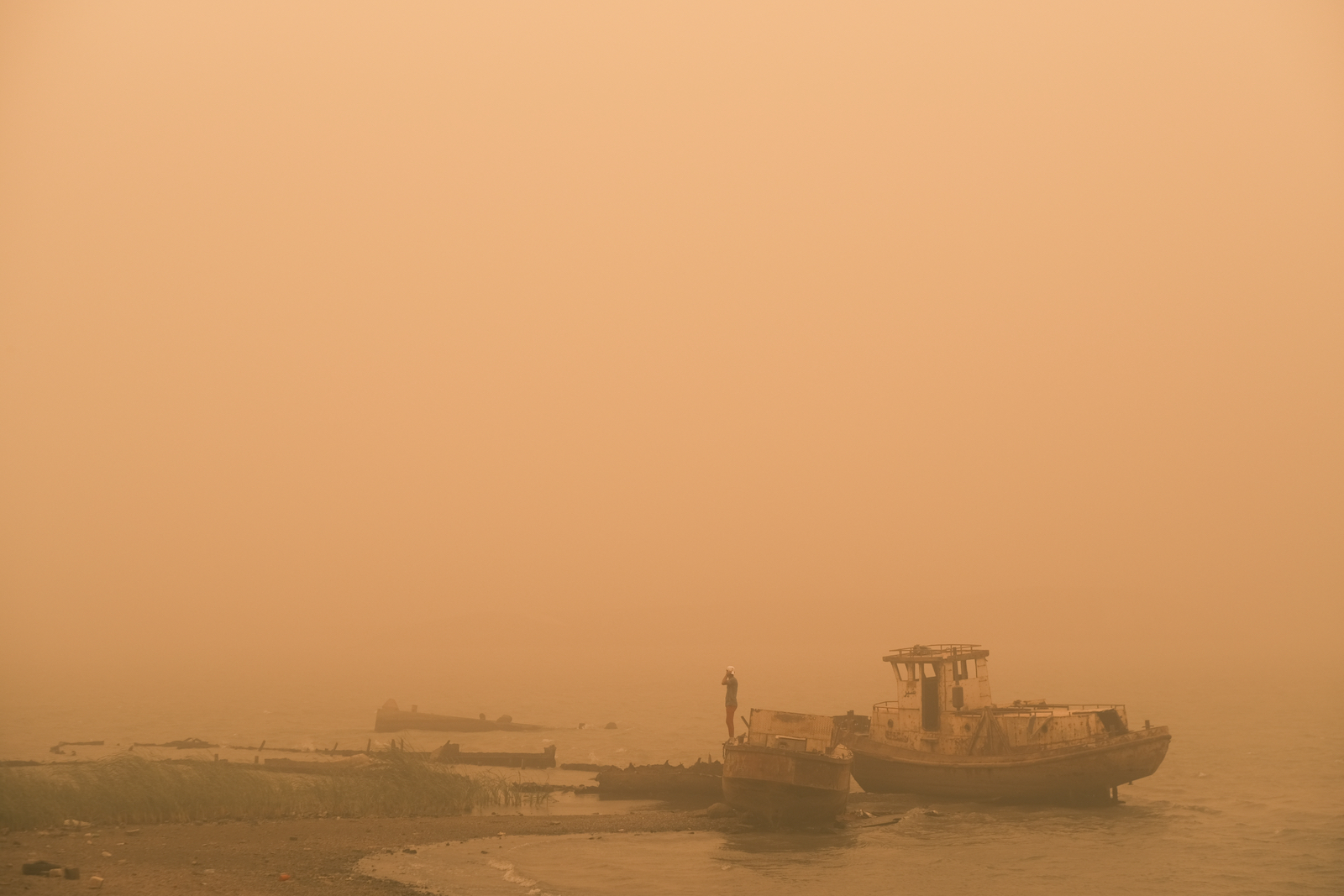
In Tackling Corruption, Iraq’s Sudani can’t Ignore Other Ills
In his first speech since forming a government, Mohammed Shia’ al-Sudani, Iraq’s new prime minister, has all but declared a war on corruption in the country. Speaking to Iraq’s parliament last week, Sudani decried corruption as a plague worse than the pandemic, emphasising how it has long hindered socioeconomic progress and promising to deliver a new programme that “includes resolute, multifaceted, and multi-level policies and procedures to combat rampant corruption.”
The United States, too, has vowed to support his efforts to tackle corruption and bolster the Iraqi economy. However, as U.S. Secretary of State Antony Blinken highlighted in welcoming the Sudani government, the international community must go beyond corruption in order to effectively support Iraq’s socioeconomic development. Indeed, global actors must cooperate in tackling the wider threats of climate change and insecurity undermining Iraq’s prosperity.
The long shadow of corruption
Today, Iraq is one of the most corrupt countries in the world, with endemic-scale corruption fueling poverty, unemployment, poor public services, and widespread unrest. Overly reliant on the oil sector, the Iraqi economy is largely informal. More than half of private businesses are not officially registered, limiting the capacity of the sector, and placing undue pressure on the public sector as a job creator. After years of mismanagement, the bloated public sector now employs 42% of the country’s workers; almost half of all government spending is currently directed to salaries and pensions.
At the root of the country’s struggle lies its consociationalist governance system, otherwise known as muhasasa, which has contributed to deepening sectarianism and nepotism. Under this system, institutions are populated based on sectarian allegiances as part of an effort to ensure stable and fair representation. However, in practice, the highest public offices and ministries, as well as access to resources, have now been “fixed” along sectarian lines. Meanwhile, Iraq’s existing system provides power brokers with few, if any, incentives to develop accountable institutions and deliver economic benefits to the rest of the population.
These problems are exemplified by the recent $2.5 billion government embezzlement scandal, which some have called “the theft of the century,” in which trillions of Iraqi dinars were fraudulently paid out to five companies by an office within the Ministry of Finance. While authorities have carried out a rash of arrests and property seizures – among them the CEO of Al Mubdioon Oil Services company, Nour Jassim – the UN Assistance Mission to Iraq has called on the international community to help Iraq investigate the crime and locate the four other suspects.
At the same time, Iraqi governance is marred by the patronage and clientelism prevalent in the Barzani-ruled Kurdish region that undermines its investment climate, infamously displayed by the ongoing misappropriation saga involving Kuwaiti logistics firm Agility, France’s Orange, and Iraqi mobile telecoms operator Korek. Agility and Orange’s $810 million investment and 44% stake in Korek was seized without compensation, leaving the company in the hands of the founder and first cousin of the Kurdish region’s prime minister, Sirwan Barzani. There can be no doubt that the depth and scale of Iraqi corruption will require comprehensive and sustained effort from all sectors if it is to be properly rooted out.
Climate change adding another blow
In addition to being one of the world’s most corrupt countries, Iraq is also one of the most climate vulnerable, with water scarcity, drought, and dust storms posing a substantial threat to local economies and public health. In May this year, for example, the country was hit with its ninth sandstorm in less than two months, seeing airports closed and thousands hospitalized with respiratory problems. The environmental ministry has warned that Iraqis should expect to endure an average of 272 days of sandstorms a year over the next two decades, rising to more than 300 by 2050. Combined with urbanization, inefficient water use, and improper environmental planning, Iraq’s environmental future threatens to be nothing less than catastrophic.
It is clear, then, that local authorities and the international community must cooperate to help Iraqi communities mitigate and adapt to climate change and avoid disaster. The development of measures such as early warning systems based on satellite and meteorological data, for example, could be essential to recognising and responding to signals from local communities about specific conflict risks arising from environmental factors.
Moreover, renewable energy investment will help expand clean sources of energy and tackle costly power shortages in the country. Agreements such as the one reached between Norway’s Scatec, Egypt’s Orascom Construction and Iraqi company Bilal last year will undoubtedly help pave the way to a more environmentally and economically resilient Iraq.
Ever-present terrorism scourge
What’s more, climate change is fueling increasingly frequent dust storms which ISIS is using as cover for its attacks on Iraqi forces, showing that, while diminished, the group remains a significant threat to Iraq’s security and economic development.
ISIS has successively capitalised on the grievances of people living in politically insecure, poverty-stricken regions of Iraq to recruit new members and continue waging war. These are areas formerly controlled by ISIS that are largely beyond the de facto influence and protection of the Baghdad government, which has essentially outsourced security duties to Iran-linked Shiite militias that are not only unfit to deal ISIS a definitive military blow but are directly pushing beleaguered citizens into the terrorist group’s arms. In light of this reality, complementary immediate military and longer-term socioeconomic interventions will be needed to curb persistent ISIS advances in the country.
If Iraq’s incoming Sudani government is to deliver reform and prosperity where previous governments have failed, it must tackle climate change and terrorism at the source in addition to stamping out endemic corruption. Messages of support from powerful allies like the United States are welcome, but the U.S. and the broader international community will need to match these words with a high degree of action and long-term commitment to support Iraq’s efforts to build a better future for its people.

